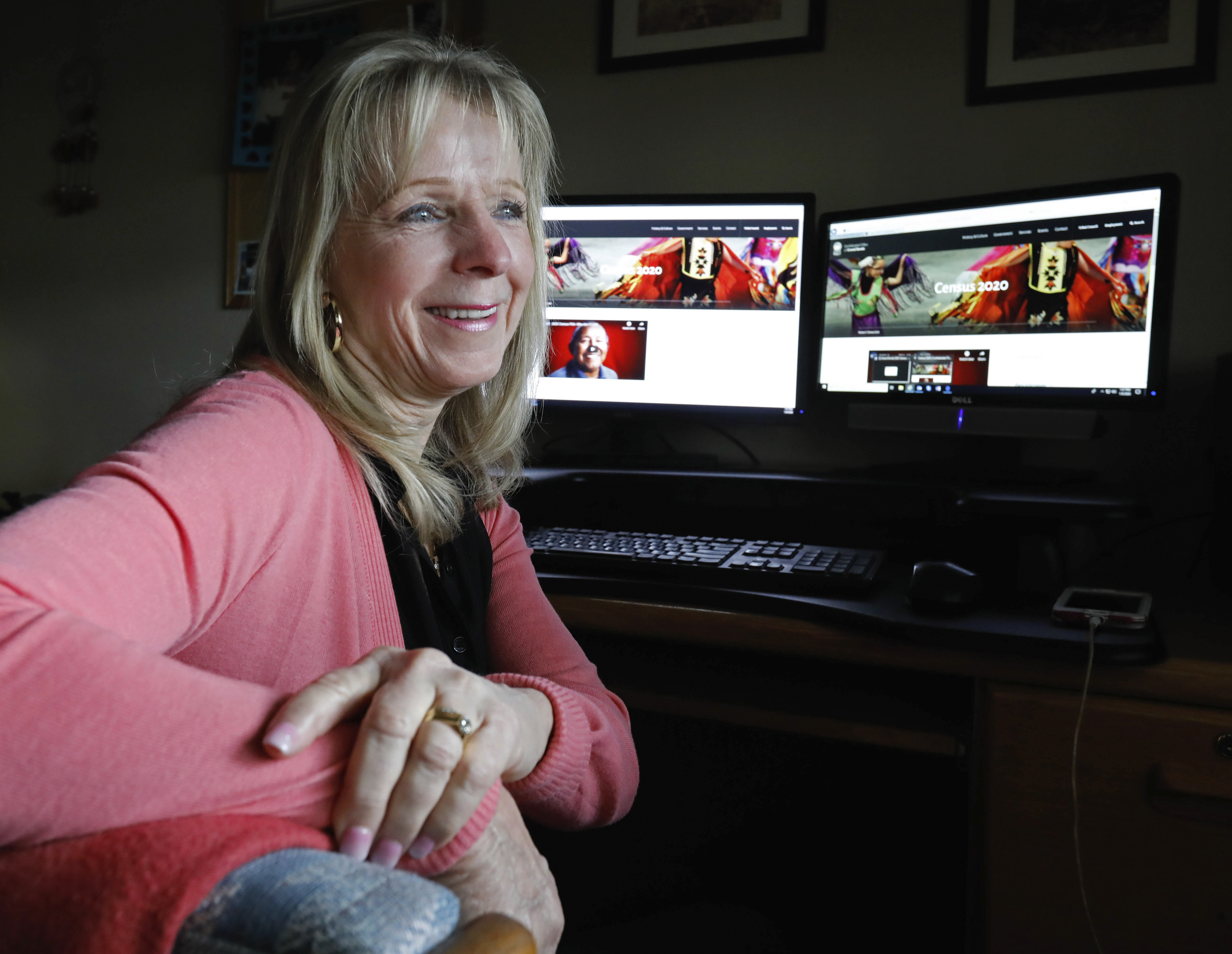Tribal Government & News
Joan Dugger leading Tribal efforts for 2020 census count

For more information on becoming a census taker, contact Joan Dugger at 503-879-1804 or e-mail joan.dugger@grandronde.org. To learn more about the census, visit www.grandronde.org/census-2020/
By Danielle Frost
Smoke Signals staff writer
Native Americans have often been historically underrepresented when it comes to U.S. census numbers.
In the 2010 census, Native Americans and Alaska Natives living on Reservations were undercounted by 4.9 percent, according to Census Bureau data.
Grand Ronde Housing Administrative Program Manager Joan Dugger is hoping to change that trend by serving as a liaison for the Tribe to ensure accurate counts.
“It’s really important because Tribal people have historically been underserved,” she says. “It is sad. We have been undercounted for the duration of the census. It is critical to me that we get these numbers up. I’ve made it a personal goal of mine.”
Dugger has been working since the summer to streamline the process. She formed a committee with representatives from different Tribal government departments who meet monthly. The group recently had the daunting task of sending out census reminder fliers to 3,750 Grand Ronde Tribal families living in the United States. With the help of census employees in Salem and Grand Ronde TERO workers, they were able to accomplish the task in just one day.
“One of the challenging parts is the funding,” Dugger says. “Thankfully, we have had different Tribal departments give out funds and resources to get this done. Tribal Council is 100 percent behind the effort as well.”
Another avenue Dugger is utilizing to increase awareness is “lobby stands,” which will be located in different areas on the Tribal campus, and will include snippets of information about the upcoming census. She’s also created a Facebook page and website with census details.
The next task is to recruit Native American census takers who are known in the community.
“During the 2010 census, there were no recognizable people from our community to take the information, so when the workers showed up at people’s homes, they were pretty much stonewalled,” Dugger says. “Another thing we want to do is let people in housing know that the information they provide will be completely confidential. So if they are worried that someone who is not on the lease will get them in trouble, there is no concern because we are forbidden to have that information. It is a firewall we cannot breach.”
Tribal residents living in the Grand Ronde or Portland areas who are interested in becoming census takers are encouraged to contact Dugger. She notes that the job is a good fit for many because employees set their own hours, pay begins at $18 per hour, and the money they earn will not be counted toward any assistance they currently receive.
“It is basically a free pass and really helpful if you need extra income,” Dugger says. “There are some who may be intimidated by the federal background check, but that should not be a deterrent because as long as applicants are honest about their history, they will likely give you a pass in many circumstances.”
She adds that census taker jobs do require the applicant have a driver’s license, but the government reimburses for mileage at the federal rate of 57 cents per mile.
For those who do not want to receive a knock on their door by a census taker, there are other ways to respond. For the first time, the census will be available online. Other options are to call or use mail delivery to return the questionnaire. Residents can begin this process when the census starts on Wednesday, April 1.
“It is very important to participate in the census,” Dugger says. “Many programs the Tribe has are grant funded and these are developed off census numbers. Every Tribal response we get is worth approximately $3,200. That makes a huge difference and funds our grant-driven programs.”
To help ensure participation is at the highest levels, Education Manager Angela Fasana applied for and received a $2,000 grant through United Way to purchase laptops and iPads to help encourage census participation online for those who lack home computer access.
Grand Ronde was one of 25 Tribal applicants out of 500 that received the grant. The laptops and iPad will be available at the Tribal Library later this year for anyone who needs to research information.
“We’ll be working through the summer to gather accurate data and we’re hoping it will go smoothly,” Dugger says. “We’re here and willing to help anyone with a need. We’re really invested in this going well.”
The U.S. Constitution requires that the federal government conduct a census every 10 years to determine how many people are living in the United States and a controversial Trump administration proposal to include a citizenship question on this year’s census form was struck down by a federal court ruling.
